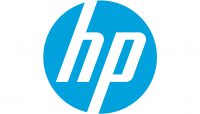The OEM is being sued by MicroTech over Autonomy software “that was never properly delivered”.
The Guardian reported on US reseller MicroTech suing the OEM for $16.5 million (€14.8 million) over “improper delivery of Autonomy software”, as well as accusing HP of “keeping both MicroTech’s money and Autonomy’s software”. MicroTech had been cited in the OEM’s case against the founders of Autonomy, which The Recycler reported on in April.
Former Autonomy CEO Mike Lynch, alongside Finance Director Sushovan Hussain, were named in a claim filed for $5.1 billion (€4.7 billion) in damages at the UK High Court. The OEM acquired Autonomy in 2011, but wrote down its worth in November 2012, claiming that “accounting fraud and inflated financials” from Autonomy officials, including Lynch, were to blame, and HP’s shareholders sued HP for mismanagement, though a settlement was announced in June 2014 and secured in March this year.
MicroTech, founded by US military veteran Tony Jiminez, opened its case against HP at the US District Court for Northern California, and “alleges breach of contract”. In July 2014, the company was in the spotlight due to it and the Vatican being named in the ongoing HP-Autonomy battle. MicroTech claims Autonomy software “paid in cash [for] was never properly delivered, with the keys that would allow it to sell the software on to end-users being withheld”.
Two separate contracts were named, for the Vatican library and HP itself. Neither bought Autonomy software from MicroTech or Autonomy, but MicroTech signed contracts to buy the software in the first place. MicroTech had been booked in by Autonomy as having resold software to the Vatican worth $11.5 million (€8.5 million) in revenue, but the Vatican said it “did not purchase the software”; despite this, Autonomy booked in the transaction based on it selling the software to MicroTech.
 MicroTech now alleges it “paid” $9.2 million (€8.2 million) of this in cash to Autonomy, with the balance “withheld” after it became clear that there were “issues”, and MicroTech never received any money or software. MicroTech wrote to the Vatican library “seeking payment” for the software in early 2014, with Jiminez stating Autonomy had requested MicroTech buy the software so that his company could “participate as a reseller”, while MicroTech was “surprised” to see another company, NTT Data Corp., from Japan, announce it had been selected to digitise the Vatican’s library.
MicroTech now alleges it “paid” $9.2 million (€8.2 million) of this in cash to Autonomy, with the balance “withheld” after it became clear that there were “issues”, and MicroTech never received any money or software. MicroTech wrote to the Vatican library “seeking payment” for the software in early 2014, with Jiminez stating Autonomy had requested MicroTech buy the software so that his company could “participate as a reseller”, while MicroTech was “surprised” to see another company, NTT Data Corp., from Japan, announce it had been selected to digitise the Vatican’s library.
Jiminez asked if Autonomy software had been used at all, when payment was made for the software “and who received it”, with his request for receipt and payment meeting a response from library prefect Monsignore Cesare Pasini, who stated that the assumption Autonomy software was used “is absolutely false”, with no involvement agreed, and that the library has “never dealt with Microtech”.
The HP transaction, worth $7.35 million (€6.61 million), was again “never closed”, and no software was made available, with lawyers for MicroTech stating that “Autonomy again misrepresented […] that it had a deal in place with an end user”. As a compromise, MicroTech is asking HP to “relicense the software” so it can find another buyer – however, it “features prominently” in the Autonomy case, with HP stating that it had been “paid, with profits” for the software, with a “series of reciprocal deals” made with Autonomy.
These include an August 2011 deal where Autonomy paid MicroTech $8.2 million (€7.3 million) for a cloud solution “never delivered and […] never requested by Autonomy”, followed by the payment from MicroTech to Autonomy for $7.35 million (€6.61 million) said to have been “logged as payment for software intended for resale to HP”.
In the case of the Vatican, Autonomy paid MicroTech to set up a facility to display technology, but Autonomy is said to have paid “the entire cost of the project” – $9.6 million (€8.6 million) – before hiring anyone, and on the same day a payment of $6.3 million (€5.6 million) was received by Autonomy from MicroTech.
HP’s case against Autonomy lists nine transactions between MicroTech and Autonomy that it deems “questionable”, which are worth $33 million (€29 million) in total. These include one for $10 million (€8.9 million) of software for use by another reseller, DiscoverTech, whose CEO David Truitt is one of MicroTech’s “founding investors”. DiscoverTech again is alleged by HP to be involved in $42 million (€37 million) of “improper” transactions with Autonomy. Truitt is also COO of another reseller, Microlink, and HP claims $22 million (€19 million) of transactions between Autonomy and Microlink occured before the reseller was purchased for $57 million (€51 million).
